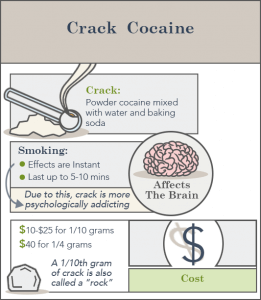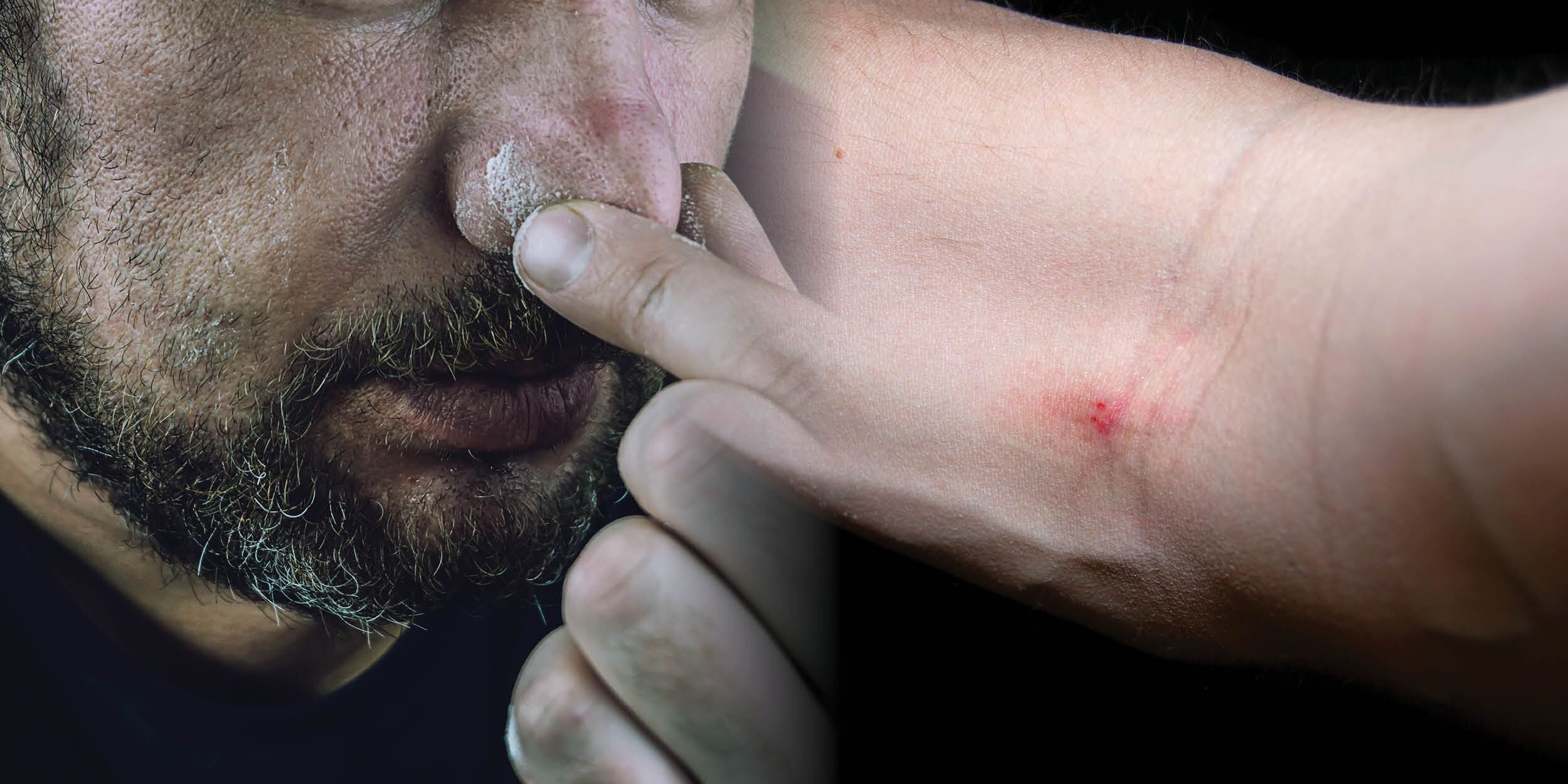What are the Long Term Effects of Crack Use?
- Smoking is a leading cause of cancer, including lung, throat, mouth, and esophageal cancer, so it should be no surprise that cigarettes can also increase your risk of skin cancer.
- Lung irritation can lead to coughing, increased mucus production, wheezing, and hoarseness. Smoking a drug may also lead to inflammation of the lung tissue, lung or pulmonary infections, asthma, and even pneumonia. The specific risks and dangers vary from drug to drug, though smoking certain drugs hit users harder than others.
Jul 05, 2019 The crack cocaine smoke constricts blood vessels in the lungs, preventing proper circulation in these delicate organs. Over time, permanent damage and scarring can occur, which result in difficulty breathing and chest pain. Damage to the kidneys, heart, and liver. Neglect of daily life and responsibilities.
Crack refers to crack cocaine, which is freebase cocaine. Smoking crack can have a variety of short term effects, and it mostly makes the user feel euphoric and energetic. The long term effects of crack, however, can be very serious. The seriousness of the long term effects are directly related to how much crack a person uses and how often, as well as their own individual body chemistry and any pre-existing conditions. Here’s a look at some of the risks.
Long Term Effects of Crack on the Body

Smoking crack can have a lot of long term effects on a user’s body, and most of them are related to the smoking aspect itself. Long term effects of crack smoking include things like cancer of the lungs, throat, or mouth, and respiratory diseases related to inhaling smoke. Smoking a crack pipe can also cause burns and blisters on a person’s mouth, lips, or fingers, which could lead to permanent scarring or marks.
Smoking crack can also cause permanent lung damage. Crack restricts the flow of oxygen to the lungs, and this can cause scarring in the lungs, trouble breathing, chronic cough, and pain.
Long term effects of crack could also be caused by other substances that are mixed with the cocaine. Crack is rarely smoked in its pure form, and any type of substance could have been added. The toxicity of the various chemicals that could be found in crack can also result in a variety of long term effects that depend on the type of substance.

Crack can increase a person’s heart rate and blood pressure, and this can lead to long term cardiovascular complications, such as heart disease, heart attack, and stroke. People who are high have a tendency to scratch and pick their skin, which can cause permanent scars.
How Bad Is Smoking Crack For Your Lungs Cancer
Long Term Effects of Crack on the Mind
Crack affects the dopamine system in a person’s brain, and dopamine is related to a person’s mood. In the long term, crack could cause permanent damage to the brain that could result in depression, anxiety, paranoia, and psychosis. When a person is withdrawing from crack cocaine, they can become depression, psychotic, violent, or desperate to get more crack, and those effects worsen over time and with more frequent use. Long term effects can also include hallucination and other psychotic conditions.

How Bad Is Smoking Crack For Your Lungs Naturally
Other Long Term Effects of Crack
How Bad Is Smoking Crack For Your Lungs Infection
Crack is a powerfully addictive substance, and the most significant long term effects are often related to addiction. If a person develops an addiction to crack, they may engage in risky behaviors while high or in order to get more of the drug, such as unprotected sex or violent behavior. Risky behavior can cause accidents, injuries, or the contraction of diseases with potentially long term or permanent effects.

A crack addiction can also cause damage to a person in many areas of life. Problems with relationships, school, work, money, and the law could become serious, lifelong issues. Babies who are born to mothers who smoked crack while pregnant may also have significant developmental and cognitive deficiencies in their lives.
Crack lung is a pulmonary condition that can occur in those who use large amounts of the narcotic crack cocaine. The illness typically causes fever, coughing, phlegm, intense pain, and bleeding from the lungs. Crack lung sometimes shows up as lung abnormalities on X-rays, though this is not always the case. It can cause severe inflammation and scarring of the lung tissue. The condition can lead to chronic lung damage and death.
The symptoms of crack lung are often likened to those of pneumonia or emphysema. They generally appear only after heavy use of crack cocaine. Symptoms will usually begin within two days of crack cocaine abuse. While its symptoms are similar to emphysema, crack lung is typically considered a more acute illness. While emphysema typically develops over years of smoking cigarettes or exposure to other airborne toxins, crack lung usually occurs quite soon after large amounts of crack cocaine are smoked.
Experts believe that the lung damage caused by smoking crack cocaine occurs because cocaine typically causes the narrowing of blood vessels. This narrowing can lead to sharp increases in blood pressure in the lungs. When large amounts of crack cocaine are smoked continuously over a prolonged period of several hours or more, the tissues of the lungs can begin to suffer from restricted blood flow. As a result, lung tissues may not receive the oxygen they need to function properly. Inflammation and, eventually, scarring can occur as a result of crack lung.
While lung tissue is generally considered difficult to damage irreparably, doctors usually stress that the tissue cannot recover once it is damaged. It may take some time for crack lung to lead to significant long-term lung symptoms, such as shortness of breath, wheezing, and reduced ability to exercise. Most medical experts agree that this window of time is much shorter than it is for emphysema, a condition in which the lungs are usually damaged by long-term tobacco smoking. Acute episodes may lead to death if not treated quickly.
When inflammation or scarring of the lung tissues occurs, crack lung may be suspected if the person is younger than about 50 years of age. That's because emphysema doesn't normally appear in people younger than 50, unless they possess a rare genetic anomaly. A history of crack cocaine use is usually considered an indicator of the condition. Lung function tests, MRIs, and X-rays are usually used to diagnose lung damage due to crack cocaine use.